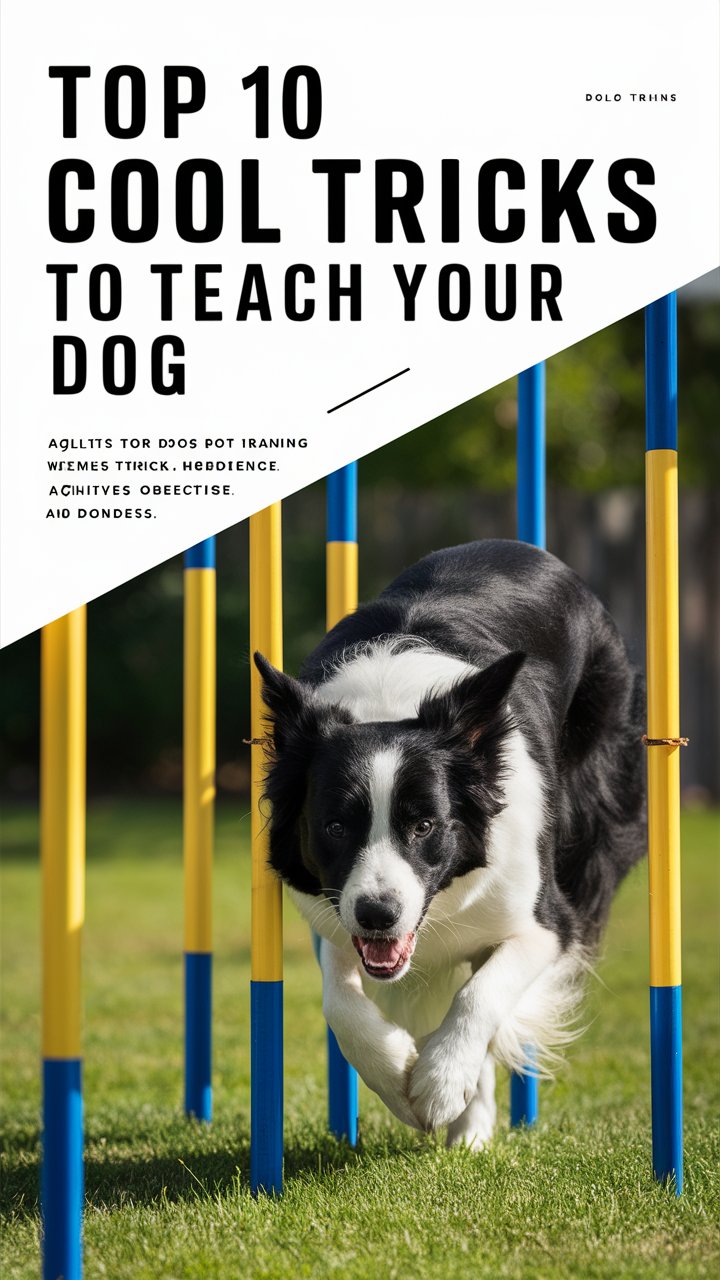Dogs are naturally intelligent, but did you know you can actually boost your dog’s IQ with the right activities, training, and lifestyle choices? Whether you own a playful Labrador, an energetic German Shepherd, or a cute little Poodle, raising your dog’s intelligence can make them happier, more obedient, and deeply connected with you.
In this article, we’ll explore science-backed strategies, expert-approved methods, and fun games to help your dog become a true canine genius. 🧠🐾
Why Boosting Your Dog’s IQ Matters
Before we dive into the “how,” let’s answer the “why.”
- Better Obedience – Smart dogs learn faster and follow commands reliably.
- Stronger Bond – Training and brain games improve communication and trust.
- Behavior Improvement – Intelligent dogs are less likely to show destructive behavior because they’re mentally stimulated.
- Healthier Life – Mental stimulation supports cognitive function, especially as dogs age.
1. Start With Smart Foundations: Basic Training
Training is the building block of your dog’s intelligence. Without it, you can’t move to advanced learning.
- Sit, Stay, Come → These aren’t just commands—they teach discipline and focus.
- Reward-based Training → Use treats, praise, or toys as positive reinforcement.
- Clicker Training → Scientifically proven to improve learning speed.
💡 Pro Tip: Keep sessions short (5–10 minutes). Dogs learn better in bite-sized lessons rather than long, tiring drills.
2. Advanced Commands and Trick Training
Once your dog masters the basics, level up with advanced tricks:
- Fetch by Name → Train them to recognize toys by name (“Ball,” “Teddy,” “Rope”).
- Put Toys Away → A smart way to keep your home tidy.
- Ring a Bell to Go Outside → Boosts communication and independence.
- Object Discrimination Games → Dogs can learn the difference between shapes and colors with proper training.
👉 These activities not only improve IQ but also give your dog a sense of purpose.
3. Brain Games That Build Canine Intelligence
Dogs love challenges. Mental stimulation prevents boredom and makes them sharper. Try these enrichment activities:
- 🧩 Puzzle Toys → Invest in toys that dispense treats when solved.
- 👃 Scent Work → Hide treats around the house and let your dog sniff them out.
- 🎭 Hide and Seek → Improves problem-solving and bonding.
- 🤹 DIY Obstacle Course → Use chairs, boxes, and cushions to make a mini agility track.
💡 Pro Tip: Rotate toys weekly. Newness excites dogs and keeps their brains active.
4. Socialization: The Hidden IQ Booster
Dogs are social creatures. Interaction improves confidence and adaptability.
- Take your dog to dog parks to learn social behavior.
- Arrange doggy playdates for mental and physical stimulation.
- Expose them to new environments (markets, busy streets, nature trails) for confidence building.
👉 Socialization makes dogs more emotionally intelligent, which is just as important as brain power.
5. Exercise and Physical Fitness = Brain Health
A tired dog is a happy dog—and a smarter one. Exercise boosts oxygen flow to the brain.
- Daily Walks (30–60 mins) → Keeps mind and body active.
- Swimming → Great low-impact workout for body and brain.
- Fetch & Tug of War → Combines physical activity with problem-solving.
6. The Role of Diet in Canine Intelligence
Just like humans, nutrition plays a major role in brain development.
- Omega-3 Fatty Acids (DHA, EPA) → Found in fish oil; supports cognitive health.
- Antioxidants → Blueberries, spinach, and pumpkin boost memory and focus.
- High-Quality Protein → Fuels brain cells and muscle growth.
- Supplements → Consult your vet about brain-boosting supplements for older dogs.
💡 Avoid processed, low-quality kibble—it can dull your dog’s mental sharpness.
7. Keep Learning Fresh: Change Their Routine
Dogs thrive on novelty. If life becomes repetitive, they mentally “switch off.”
- Change walking routes.
- Introduce new games weekly.
- Teach seasonal tricks (e.g., “find the pumpkin” during fall).
8. Communication: Talk and Bond With Your Dog
- Use Consistent Words → Dogs understand up to 200+ words with training.
- Tone Matters → A cheerful tone encourages, while a firm tone corrects.
- Eye Contact → Builds trust and emotional bonding.
💡 Talking to your dog isn’t silly—it’s scientifically proven to improve their responsiveness.
9. Advanced Stimulation for High-IQ Dogs
For owners who really want to challenge their pups:
- Canine Sports → Agility, flyball, dock diving.
- Service Dog Training → Teach tasks like fetching items, alerting for sounds.
- Scent Detection → From finding hidden objects to basic search-and-rescue games.
These not only raise IQ but may even turn into rewarding careers for your dog!
10. Long-Term Brain Health: Preventing Canine Dementia
Older dogs can suffer from Canine Cognitive Dysfunction (CCD), similar to dementia. Prevention is key.
- Keep training even in senior years.
- Provide antioxidant-rich diets.
- Use memory-based games daily.
- Regular vet check-ups for early detection.
Wrapping It Up: Raising Your Dog’s IQ is a Lifelong Adventure
Raising the IQ of your dog isn’t about turning them into Einstein—it’s about making them happier, more confident, and more connected to you.
- ✅ Start with basics
- ✅ Introduce advanced training & puzzles
- ✅ Keep them social, fit, and well-fed
- ✅ Engage daily with love and consistency
With patience and effort, your furry friend will surprise you with just how smart they can be. 🐶💡
